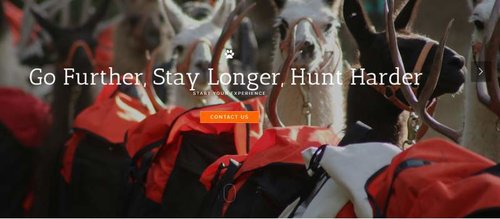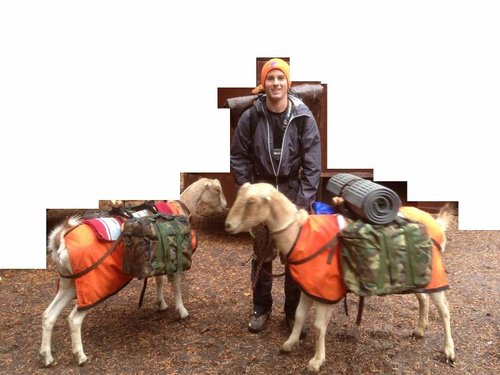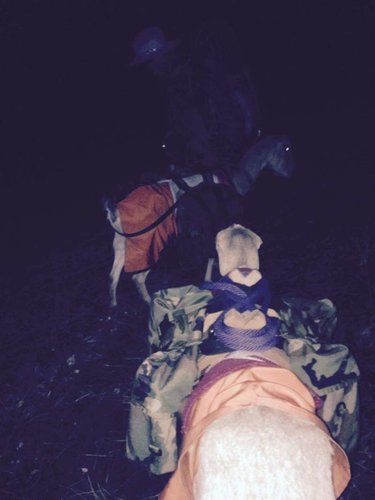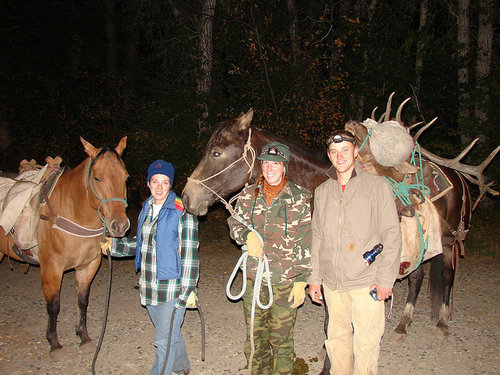I lucked out and ran into Beau and Kristin at the BHA event in April. I got a first-hand introduction to their llamas. Very impressed with the llamas and how much Beau and Kristin know about llamas. Beau has continue to stay in touch with me and he wants to find a hunt where they can come with and show us first hand how these llamas are the mountain animal you can use for packing. I doubt I will need much convincing.
I had no idea that llamas had so many different variations. Some are bred for wool, some for food, and in his case, for packing. Their herd is a bred specifically for mountain work and packing larger loads. They were a bit stockier than llamas I have seen in the past. He gave me a ton of information about how his line of llamas is perfect for the packing that he does (Beau is a 4th generation Idaho packer).
Anyhow, if any of you are interested in renting llamas for a hunt this fall, they still have some open rental dates. Not many, but a few. It seems best to get on their list a year in advance.
Here is their website link - http://www.wildernessridgetrailllamas.com/

Don't be surprised if in a few years I start acquiring my own llamas as my body continues its ever-increasing protests. Horses hate me and that is pretty mutual with me and them. I would rather walk in the mountains than ride a horse; horses being animals I equate to hay-eating automobiles without steering mechanisms or throttle controls. I'll take something more subdued and ready to pack a load. And, low maintenance in terms of food, water, and other attention. I'll try my luck with llamas. I'll let you know how it turns out.
I had no idea that llamas had so many different variations. Some are bred for wool, some for food, and in his case, for packing. Their herd is a bred specifically for mountain work and packing larger loads. They were a bit stockier than llamas I have seen in the past. He gave me a ton of information about how his line of llamas is perfect for the packing that he does (Beau is a 4th generation Idaho packer).
Anyhow, if any of you are interested in renting llamas for a hunt this fall, they still have some open rental dates. Not many, but a few. It seems best to get on their list a year in advance.
Here is their website link - http://www.wildernessridgetrailllamas.com/

Don't be surprised if in a few years I start acquiring my own llamas as my body continues its ever-increasing protests. Horses hate me and that is pretty mutual with me and them. I would rather walk in the mountains than ride a horse; horses being animals I equate to hay-eating automobiles without steering mechanisms or throttle controls. I'll take something more subdued and ready to pack a load. And, low maintenance in terms of food, water, and other attention. I'll try my luck with llamas. I'll let you know how it turns out.











